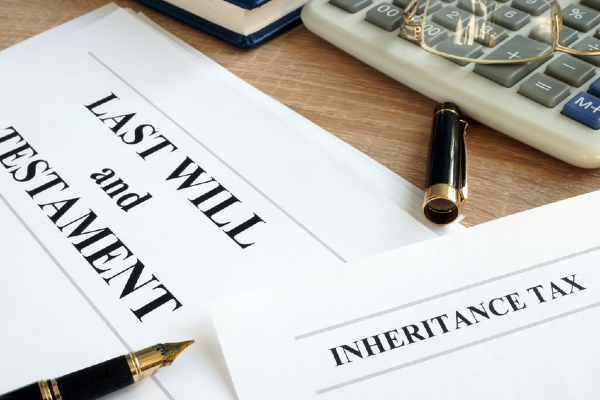You’ve heard the saying: "Where there’s a will, there’s a way". Well, that will (pun intended!) can make a big difference in estate administration when someone passes away.
If there’s a will, then a grant of probate (GP) is the document you need. If there’s no will (or that will is invalid), then you’re talking about a letter of administration (LA).
These important legal instruments are both part of a set of steps, which authorise and trigger the process of estate administration, also known as settling a will.
Since each one is an important instrument, it’s also a process that’s filled with lots of legal jargon and complicated procedures.
We’re going to be breaking down all the jargon behind estate administration, and the all-important grant of probate and letter of administration.
What is estate administration?
Estate administration is the process of determining the rights and legal transfer of ownership of all possessions and assets, upon the occasion of an individual’s death.
Such administration usually follows the wishes of an individual’s will, but can become more complicated if such a record of the wishes does not exist!
Creating a will is ‘estate planning’ — providing a framework to ensure your wishes are known in regards to passing on your estate after your death.
Administering the balance of debts and assets after death is ‘estate administration’ — administering the due and legal process for splitting your earthly assets between your beneficiaries.
Of course, you also have to deal with the obligations too. Now, estate administration allows you to:
- Establish assets.
- Identify debts and obligations.
- Distribute that estate between beneficiaries in accordance with the Probate and Administration Act 1959.
Basically, estate administration is a really important way to ensure the correct friends and members of family receive the assets, cash, nice cars, value/ownership of property, etc – exactly how you want them to after you’re gone.
What’s the legal jargon all about?
It’s good to understand the legal jargon to start off with. The process of applying for a GP or LA covers a whole range of key legal terms, which are referenced heavily in the Probate and Administration Act Malaysia.
Here’s a quickfire list of essential terms that are valuable to know:
- Testator – the person who writes a will, i.e. the deceased individual whose estate is subject to administration.
- Executor – the individual named on the will to administer it upon the testator’s death, ensuring that the wishes of the deceased are followed EXACTLY. There can be more than one named executor.
- Administrator – the person(s) designated to administer the estate if no executor of will is named.
- Grant of probate (GP) – a grant of permission issued by the High Court to the named executor(s) of a will, empowering the executor to administrate the testator’s estate.
- Letter of administration (LA) – in cases where there’s no will, a grant of probate is replaced by a letter of administration in Malaysia.
- Summary administration – a legal instrument in which the executor requests to be removed from the responsibility of executor, for estates that are valued at less than RM600,000.
The grant of probate and letter of administration apply to non-Muslim citizens in Malaysia. The nation’s Islamic citizens require a Faraid Certificate from the Syariah High Court.
In this case, the estate distribution is carried out according to the Faraid Law, or consensus.
So, who is in charge of deciding inheritance?
If an individual in Malaysia dies with a written will, a named executor(s) is responsible for estate administration. All assets are split according to the individual’s wishes.
If an individual in Malaysia dies without a will, their assets are split as per the rules of intestacy laid out in the Distribution Act 1958 in Peninsular Malaysia and Sarawak, or the Intestate Succession Ordinance 1960 in Sabah.
Provided that the estate is valued at less than RM2 million, they’d be administered by the Land Office and Public Trustee, whereas estates over RM2mil are overseen by the High Court. There are a number of routes to administer this, as laid out below.
Muslim citizens can express their wishes through a wasiyyah, although these statements cannot contradict Islamic laws of inheritance.
What is the process for grant of probate (GP)?
When an individual dies, their estate is then frozen. That means their bank accounts and assets cannot be moved, sold, cashed, etc… until estate administration is complete. The path to distribute those assets for non-Muslim citizens depends on whether a will exists or not.
In the existence of a will, a grant is made to the High Court for a grant of probate in Malaysia, by the executor named on the will.
Once this application is made, it will be considered by the High Court at a hearing. A GP is issued, and the estate administration can be undertaken.
This process can take from 3-6 months, and a RM1,500 fee is required to apply for the GA. The documents required are as follows:
- Death certificate
- Executor’s identity card
- Identity cards of beneficiaries
- Original copy of will
- Land titles/evidence of property ownership
- Home loan statement (if applicable)
- Bank account details of deceased
- Documentation of any other assets
- Documentation of any liabilities or debts
Once a GP has been issued, the executor can distribute the estate according to the will, and following all due legal process.
PropertyGuru Tip
If you were wondering what is ‘probate’, or the meaning of that term, more specifically – well, the word basically means to establish or prove the validity of a will.
If there’s no will, the will is invalid (also known as ‘null and void’), or has failed to appropriately name an executor, then that’s where we move on to the next legal document in line…
What is the process for a letter of administration (LA)?
There are three ways in which a request can be made for a letter of administration in Malaysia. The first route is via the High Court. An LA must be filed along with the following documents:
- Death certificate
- Details of the applicant
- List of assets and liabilities of the decea sed individual
- List of potential beneficiaries
- Note of any interest of applicant
This process can take anywhere between six months to over two years! To add to the complication for an LA following this process, in the event that an estate is valued at over RM500,000, the applicant must provide TWO further sureties.
PropertyGuru Tip
The term ‘surety’ (the plural for that is ‘sureties’) is essentially a third-party who acts as a guarantor, which means that he/she will be responsible for paying the debt in case the applicant decides to disappear!
These sureties must be resident in the relevant Malaysian authority, and have assets roughly equal to the value of the estate.
You basically need two friends and/or family members with an estate worth approximately the same as the value of the testator’s estate.
Once the LA has been received, the administrator may transfer all assets from the estate to their own name, and then distribute accordingly.
You can see why those sureties are quite useful! The administrator is required to apply to the High Court for confirmation on the distribution, as per the Distribution Act 1958.
The second path is available to estates valued below RM600,000, which are eligible for administration through Amanah Raya Bhd, which is the Government-owned public trustee.
This can take four to six months for estates with movable property, i.e. cash and cars, or up to one year for estates with immovable assets such as property.
Any beneficiary or vested interest of the deceased may make this application. The fee is based on the value of the estate, permitted by law under the Public Trust Corporation Act 1995 and Probate and Administration Act 1959. Here’s how much you can roughly expect:
Estate value |
Fee |
|
For first RM25,000
|
1%
|
|
RM25,000 – RM225,000
|
2%
|
|
RM225,000 – RM250,000
|
3%
|
|
RM250,000 – RM500,000
|
4%
|
|
RM500,000+
|
5%
|
The third path you can take is only available to estates which include immovable assets, such as property. Applications can be made under the Small Estates (Distribution) Act, 1955.
The value of the estate must not exceed RM2 million in order to be eligible for this option. The Small Estate option does not require lawyers, and thus is less costly than some of the other alternatives.
There’s no fee charged by the Land Office for filing this petition. The relevant application should start the process by completing Form A of Small Estate application.
This form essentially provides a full list of assets and liabilities of the individual, as well as potential beneficiaries. The documents required include:
- Form A of Small Estate application
- Identity cards or birth certificates of beneficiaries
- Marriage certificate of decreased (if any)
- Death certificate
- Evidence of assets
- Certified true copy of land title or official title search from Land Office
- Quit rent and assessment receipts
Applications are to be made at the Estate Distribution Unit of the Department of the Director-General of Lands and Mines (JKPTG), or the Land Office where the deceased’s immovable property is located.
Once an application is made, a hearing is held to determine the estate administration. This usually takes place within three months.
Applicants and beneficiaries must be present at this hearing, although a form can be completed to note ‘inability to attend’ if unavoidable. All attendees must bring their respective identification.
The hearing is essentially a fast-track version of estate administration, verifying the details noted on Form A, and confirming the beneficiaries.
Once the court is satisfied that all the details are accurate, they’ll issue the LA and order for the distribution of an estate.
Payment for this service is then based on the value of the estate, as follows:
Small Estate processing fee | |
|
Estate value
|
Fee
|
|
RM1 – RM1,000
|
RM10 flat fee
|
|
RM1,001 – RM50,000
|
RM30 flat fee
|
|
RM50,000+
|
0.2% of estate value
|
One helpful tip is to request multiple letters of administration where possible! Banks, agencies, companies, and officials will all require a copy of this letter in order to take action on the relevant estate administration request. You can request copies from the Land Office for a flat RM5 fee.
All this estate management looking a little confusing? That’s why a will can be so important! Read our guide on What is There to Know About Wills in Malaysia and the Wills Act.
Disclaimer: The information is provided for general information only. PropertyGuru International (Malaysia) Sdn Bhd makes no representations or warranties in relation to the information, including but not limited to any representation or warranty as to the fitness for any particular purpose of the information to the fullest extent permitted by law. While every effort has been made to ensure that the information provided in this article is accurate, reliable, and complete as of the time of writing, the information provided in this article should not be relied upon to make any financial, investment, real estate or legal decisions. Additionally, the information should not substitute advice from a trained professional who can take into account your personal facts and circumstances, and we accept no liability if you use the information to form decisions.











